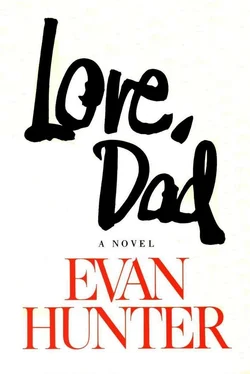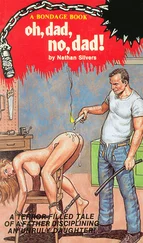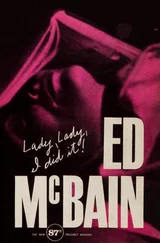She recognized The Sun Also Rises, of course, and The Good Earth (“It was Wang Lung’s marriage day,” Paul said, as her finger traveled down the lined page) and Freedom Road and, with a short trill of surprise, Magnificent Obsession, which she’d read during those two weeks she’d spent with Grandmother and Grandfather Harding on the Cape. But titles like Soap Behind the Ears by Cornelia Otis Skinner, or Random Harvest by James Hilton, or Saratoga Trunk by Edna Ferber were totally unknown to her. Well, here was another one she’d read — Black Boy by Richard Wright — but what on earth was Low Man on a Totem Pole by some man named H. Allen Smith, or Dragonwyck by Anya Seton? She knew Ngaio Marsh was a mystery writer, but had never read any of his books (Was he Japanese? Was he even a he, or was Ngaio a woman’s name?) and she’d certainly never heard of Artists in Crime. Ah, here were some recent titles: Slaughterhouse-Five, which she’d read and liked, and The Andromeda Strain, and Love Story, which she positively adored.
“Didn’t you just love it?” she said.
“Yeah, it was good,” Paul said briefly, and then immediately quoted the first line, which even Lissie knew by heart, “What can you say about a twenty-five-year-old girl who died?”
But what on earth was This Above All, and who was Eric Knight to have so boldly plundered Polonius’s speech to his son Laertes?
This Above All, as it turned out, was the novel that had finally convinced Paul to run. “This book,” he said now, turning it face side up on the bedside table so that Lissie could read the title, and then moving it onto his lap so it rested on his thigh, somewhere between his flaccid, soft, utterly vulnerable and sweet penis, and the minisectomy scar on his left leg, equally vulnerable looking.
“Well, actually this one and two others. All Quiet on the Western Front, do you see it listed there? It’s by a German writer, and it’s about World War I — ‘We are at rest five miles behind the front,’ that’s the first line — and Johnny Got His Gun by this man named Dalton Trumbo, which is about a guy — it’s listed there, do you see it? — who gets his arms and his legs and his face blown away in the war, and he’s just this trunk now, just this piece of meat lying on the bed with a little bit of gauze over his missing face. Jesus, what a book!
“But This Above All is about a British soldier who’s in the rearguard action at Dunkirk during World War II and who later deserts because he’s trying to be true to himself, you know, to his own values, I mean. When I read it, I was already worried about those figures in the paper, but then I suddenly began worrying about my values , you know? Did I really want to fight a war that was a bunch of bullshit? I mean, never mind getting killed or coming home a basket case like that guy in Johnny Got His Gun. What about the morality , do you understand me? What about killing some poor bastard Gook who maybe didn’t want to fight this war the same way I didn’t want to? So I split. Simple as that. And here I am.”
There was in Paul Gillis much of the streetwise urchin, the cunning New York City waif (a true waif now that he was a draft dodger) forced to live by his wits in a hostile world, a city-honed attitude that had caused him first to consider and then actively to pursue running as an expedient solution to what, in her reasoning mind, was far from a foregone conclusion but still only an even possibility — his number coming up before the year was out. Herself born and raised in the city, Lissie had nonetheless led the sheltered life of a suburban small-town preppie ever since she was twelve, when her parents shipped her off to Henderson, and she now found this combination of tough urban resiliency and childlike helplessness irresistibly attractive.
She loved the brisk way he moved, as though dodging taxi cabs or pushing his way into a subway train. She loved the clipped cadences of his Bronx speech with its frequently interjected “you know” or “I mean,” verbal tics she supposed ran rampant among young people everywhere but which she associated exclusively with New York and, by extension, Paul Gillis. She loved his silly scratchy beard and his dark brooding eyes, and his long, angular body. She loved the swiftness about him, the pace of him, the sheer momentum of him. She loved his hard-edged assertiveness and his surprising vulnerability. But most of all, she loved the way he made love to her.
That spring in Amsterdam, as she succumbed to a passion she had never before experienced, she recognized at once and without question that she would follow Paul Gillis wherever he went, wherever he chose to lead her.
The call from Venice did not come until April 28, the Tuesday before Jamie was scheduled to leave for Louisville on assignment for Sports Illustrated. He was nervous about going down there. The job was a plum of sorts; Sports Illustrated rarely doled out freelance assignments, preferring instead to use staff photographers for coverage of this sort. But it wasn’t this singular recognition that caused his anxiety; he knew the assignment couldn’t possibly present any insurmountable professional problems. He was nervous because he and Joanna, after considerable discussion, had decided to risk going down there together.
They had made their decision cautiously and soberly, weighing the opportunity for being alone together against the virtually impossible odds of running into anyone they knew at the Derby. He had wondered aloud, at the time, whether or not his eagerness to get away had anything to do with whatever he was feeling about his daughter. He had not heard from her since her London letter of the twentieth, and Evert Goedkoop’s telephone call had done little to reassure him. Not knowing what to do next, Jamie had phoned his lawyer, who repeated essentially what Goedkoop had said: American kids traveling in Europe were safer than they would be in Central Park, and he was sure Lissie would be contacting them soon. She had, after all, been gone for only a few weeks.
When the darkroom phone rang, he half-expected it would be Joanna, calling to finalize their plans.
“Hello?” he said.
“Dad?” the voice on the other end asked.
He was speechless for a moment. Recognizing her voice at once, astonished and relieved, suspecting from the crackling static on the line that she was calling from thousands of miles away, where a collect call would have been difficult if not impossible to place, he stammered, “Hey, hi, Lissie, hi, how are you?” as though she were calling from Boston instead, as though he’d seen her only a few days earlier.
“I’m fine,” she said. “I’m sorry I haven’t called or written sooner, but things have been sort of hectic here. Barbara and I...”
“Hectic how?” he asked at once. “Where are you? Are you all right?”
“Well, I was getting to that. I don’t mean there’s been any problem, you don’t have to worry, I’m fine. I just meant getting to see everything over here, and trying to figure out...”
“Where? Where’s here?”
“Well, right now I’m in Venice.”
“Venice?” he said. “What are you doing in Venice? I thought...”
“Well, that’s why I’m calling, Dad. How’s Mom?”
“Fine,” he said. “What are you doing in Venice? It seems to me you’re moving farther away from...”
“Yeah, but I’ll be heading home in a few days.”
“Good. You have no idea...”
Читать дальше












